Moving to a new city is an adventure filled with excitement and a healthy dose of uncertainty. Unpacking boxes and exploring your new surroundings is fun, but finding the perfect home in an unfamiliar real estate landscape? That can quickly become overwhelming. Between deciphering neighborhood vibes, understanding local market trends, and navigating the intricacies of buying or renting, it’s easy to feel lost in the process.
This relocation guide is here to be your trusted compass. We’ll walk you through every step of the process, from setting a realistic budget and defining your dream home to finding the right real estate professionals and mastering the art of the house hunt. Whether you’re moving across the country or state lines, we’ll equip you with the knowledge and strategies you need to conquer the real estate market in your new city and find a place you’ll be proud to call home.
Laying the Groundwork: Preparation for Your Real Estate Journey
Before you dive headfirst into the whirlwind of house hunting, preparing will save you countless headaches (and potentially a lot of money).
Setting Your Relocation Budget
One of the most crucial first steps is establishing a realistic budget. This isn’t just about how much house you can afford and what you’re comfortable spending. Factor in:
- Down Payment: How much can you put down upfront? A larger down payment can often mean lower monthly payments.
- Closing Costs: These fees can add up quickly, so it’s important to budget for them.
- Moving Expenses: Don’t forget to account for the cost of packing, transporting your belongings, and potentially storing items temporarily.
- Monthly Payments: Use online mortgage calculators to get an estimate of what your monthly mortgage payments might be based on different home prices and interest rates.
- Reserves: It’s wise to set aside some savings for unexpected expenses that may arise after moving in.
Defining Your Ideal Home and Neighborhood
Picture your dream home. How many bedrooms and bathrooms do you need? Do you crave a sprawling backyard or a cozy balcony with city views? Make a list of your must-haves and nice-to-haves.
Next, research neighborhoods in your new city. Consider:
- Commute: How far are you willing to travel to work or school?
- Amenities: Are parks, restaurants, shops, and entertainment options important to you?
- School Districts: If you have children or plan to have children in the future, research the quality of the schools in different areas.
- Safety: Look into crime rates and statistics for potential neighborhoods.
- Future Plans: Are you looking for a neighborhood with a strong potential for property value appreciation?
By clearly defining your budget and ideal living situation, you’ll narrow your search and save valuable time when actively looking for properties. This preparation will also help you communicate your needs to your real estate agent, ensuring they find properties that align with your vision.
Partnering for Success: Finding the Right Real Estate Professionals
Navigating the real estate market in a new city can feel like venturing into uncharted territory. That’s where real estate professionals come in – your experienced guides who can help you find your way and avoid costly mistakes.
Choosing a Knowledgeable Real Estate Agent
A real estate agent is more than just someone who shows you houses. They’re your advocate, your negotiator, and your local expert. When choosing an agent in your new city, look for:
- Local Expertise: They should have in-depth knowledge of the neighborhoods you’re interested in, including market trends, school districts, and amenities.
- Experience: An experienced agent will have a track record of successful transactions and can guide you through the process smoothly.
- Responsiveness: Communication is key! Your agent should be readily available to answer your questions and address your concerns.
- Good Reviews and Testimonials: Check online reviews and ask for references to gauge their reputation and client satisfaction.
Tip: Don’t be afraid to interview multiple agents before deciding. Ask about their relocation experience, negotiation strategies, and how they plan to tailor their services to your specific needs.
Understanding the Role of a Mortgage Lender
Unless you’re paying for your new home in cash, you’ll need a mortgage lender to finance your purchase. Getting pre-approved for a mortgage is essential before you start house hunting. It gives you a clear idea of what you can afford and strengthens your offer when you find the right property.
When choosing a mortgage lender:
- Compare Interest Rates and Loan Terms: Shop for the best rates and terms that fit your financial situation.
- Consider Different Types of Mortgages: Various types of mortgages are available, each with its advantages and drawbacks. Research and discuss your options with your lender.
- Read the Fine Print: Carefully review all loan documents and ask questions about anything you don’t understand.
Tip: Building a good relationship with your lender can benefit home-buying. They can provide valuable advice and help you navigate any financial challenges.
Mastering the Search: Strategies for Finding Your Dream Home
Now that you’ve laid the groundwork, it’s time for the exciting part: the house hunt! With a well-defined budget and a clear vision of your ideal home, you’re ready to explore the real estate market in your new city. Let’s dive into the strategies to help you find that perfect match.
Leveraging Online Real Estate Portals
The internet has revolutionized the way we search for homes. Online real estate tools like your real estate agent’s website, Zillow, Realtor.com, Trulia, and Redfin offer a wealth of listings, photos, virtual tours, and neighborhood information. Here’s how to make the most of them:
- Set Up Filters: Narrow your search by price, number of bedrooms/bathrooms, square footage, lot size, and other criteria that align with your needs and preferences.
- Save Searches and Set Up Alerts: Most platforms allow you to save your searches and receive notifications when new properties matching your criteria hit the market.
- Utilize Map Views: Explore different neighborhoods visually and see how properties relate to amenities like parks, schools, and public transportation.
Attending Open Houses and Private Showings
While online listings are a great starting point, nothing beats seeing a property in person. Open houses are a great way to get a feel for a home and its surroundings. On the other hand, private showings allow for a more personalized experience and the opportunity to ask detailed questions.
Before you go:
- Research the Property: Review the online listing and make a note of any questions or concerns you have.
- Prepare a Checklist: Create a checklist of things to look for during your visit (roof condition, foundation, appliances, etc.).
- Take Photos: Take photos or videos to help you remember each property’s details.
Evaluating Properties with a Critical Eye
As you tour properties, keep a critical eye and consider both the positives and negatives. Ask yourself:
- Does the layout work for my lifestyle? Is there enough space for your family and belongings? Does the flow of the rooms make sense?
- What is the condition of the property? Are there any obvious repairs or renovations needed?
- How does the property compare to others in the neighborhood? Is the price in line with similar homes?
- What is the potential for resale value? Consider the neighborhood’s growth potential and how the property might appreciate over time.
Don’t hesitate to ask your real estate agent for their professional opinion. They can provide valuable insights and help you assess a property’s value.
Combining online research with in-person visits and a thorough evaluation of each property, you’ll be well on your way to finding your dream home in your new city. Remember, patience and persistence are key. Don’t settle for a property that doesn’t feel right. With the right approach, you’ll eventually find the perfect place to start your new chapter.
Making an Offer and Sealing the Deal: The Final Steps
Congratulations! You’ve found the perfect home in your new city. Now comes the exciting but sometimes nerve-wracking process of making an offer and closing the deal. Let’s break down the final steps to ensure a smooth and successful transaction.
Negotiating a Fair Price and Terms
Making an offer is more than just stating a number. It involves negotiating a fair price and favorable terms that protect your interests. Here’s what to consider:
- Market Conditions: Is it a buyer’s or seller’s market? This will influence how aggressive you can be with your initial offer.
- Comparable Sales: Research recent sales of similar properties in the neighborhood to get an idea of fair market value.
- Property Condition: If the home needs repairs or updates, factor that into your offer.
- Contingencies: Include contingencies in your offer to protect yourself. Typical contingencies include a home inspection contingency, financing contingency, and appraisal contingency.
- Closing Timeline: Negotiate a closing date that works for you and the seller.
Remember, negotiation is a give-and-take process. Be prepared to compromise on some points while holding firm on others important to you.
Understanding the Closing Process
Once your offer is accepted, you’ll enter the closing process. This involves finalizing the transaction and transferring ownership of the property. Here’s a simplified overview of the steps involved:
- Home Inspection: A professional home inspector will thoroughly assess the property for defects or potential issues.
- Appraisal: A lender-ordered appraisal will determine the property’s fair market value to ensure an appropriate loan amount.
- Loan Approval: Your mortgage lender will finalize your loan approval and provide the final loan terms.
- Title Search and Insurance: A title search will ensure the seller has the right to sell the property. Title insurance will protect you against any unforeseen claims or liens.
- Closing Disclosure: You’ll receive a Closing Disclosure outlining the final costs associated with the purchase.
- Closing Day: You’ll sign all the necessary documents, pay the closing costs, and receive the keys to your new home.
During this process, it’s crucial to review all documents carefully, ask questions if anything is unclear, and seek legal advice.
Understanding the negotiation and closing processes allows you to confidently navigate these final steps and successfully seal the deal on your dream home. Remember, your real estate agent and mortgage lender are valuable resources throughout this phase, so don’t hesitate to lean on their expertise.
Special Considerations for Relocation
Relocating to a new city comes with unique challenges and considerations beyond the standard home-buying process. Here are some crucial factors to remember to ensure a smooth transition to your new life.
Navigating State-Specific Regulations and Taxes
Real estate laws, regulations, and taxes can vary significantly from state to state. It’s essential to familiarize yourself with the specific rules and regulations that apply in your new city. Here are a few key areas to research:
- Property Taxes: Property tax rates and assessment procedures can differ considerably. Research your desired neighborhoods’ average property tax rates to factor them into your budget.
- Transfer Taxes: Some states impose transfer taxes on real estate transactions. Find out if your new city has such taxes and how they might impact closing costs.
- Disclosure Requirements: Sellers may have different disclosure obligations depending on the state. Be aware of what information sellers must disclose about the property’s condition, history, and any potential issues.
- Homeowners Association (HOA) Rules: If you’re buying a property in a community with an HOA, research their rules and regulations, as they can impact your lifestyle and budget.
Adjusting to a New Community
Relocation isn’t just about finding a new house; it’s about embracing a new community and making it your own. Here are some tips to help you settle in and feel at home:
- Connect with Neighbors: Introduce yourself to your neighbors, attend community events, and join local groups or clubs that align with your interests.
- Explore Your Surroundings: Discover the local parks, restaurants, shops, and cultural attractions. Get to know the rhythm of your new neighborhood.
- Find Essential Services: Locate nearby grocery stores, pharmacies, medical facilities, and other essential services that you’ll need.
- Update Your Address: Notify the post office, bank, credit card companies, and other relevant institutions of your new address.
- Register Your Vehicle and Obtain a New Driver’s License: If you’re moving from another state, you’ll typically need to register your vehicle and obtain a new driver’s license within a certain timeframe.
By addressing these special considerations and actively engaging with your new community, you’ll make your relocation smoother and set the stage for a fulfilling and enjoyable life in your new city. Remember, relocating is a journey, not just a destination. Embrace the adventure and all the opportunities of starting fresh in a new place.
Closing Points
Relocating to a new city is a significant life change, but it doesn’t have to be overwhelming. By following this comprehensive guide, you’ll be well-equipped to navigate the real estate market in your new city confidently. Remember, preparation is key. Setting a budget, defining your ideal home, partnering with the right professionals, and utilizing effective search strategies will streamline your house-hunting journey.
© 2024 xpertRealtyMarketing.


